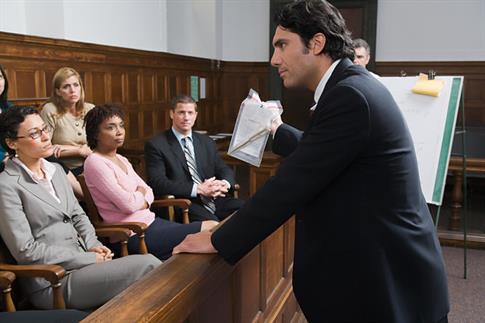 McDonald v. Four Rivers Devel., LLC addressed, inter alia, an issue of trial by consent. The appellant argued that the trial court erred in admitting evidence about a “25% profit margin requirement,” but the Fifth Court noted that the appellant mentioned the 25% profit margin in opening statement and asked about it during direct examination, thereby making the issue relevant–before later objecting to further evidence on the subject. No. No. 05-24-00431-CV (March 28, 2025) (mem. op.). (My partner John Volney and I wrote this article in Headnotes a couple of years ago about then-recent Fifth Court cases on similar trial-by-consent issues.)
McDonald v. Four Rivers Devel., LLC addressed, inter alia, an issue of trial by consent. The appellant argued that the trial court erred in admitting evidence about a “25% profit margin requirement,” but the Fifth Court noted that the appellant mentioned the 25% profit margin in opening statement and asked about it during direct examination, thereby making the issue relevant–before later objecting to further evidence on the subject. No. No. 05-24-00431-CV (March 28, 2025) (mem. op.). (My partner John Volney and I wrote this article in Headnotes a couple of years ago about then-recent Fifth Court cases on similar trial-by-consent issues.)
Category Archives: Trial
Vincent v. Deutsche Bank reversed a judgment in a FE&D case when:
The trial court’s June 12 written notice that trial was set for July 14, following the trial court’s instruction to “reset” the case, establishes that the trial court “reset” the case on July 14, but then proceeded to trial on June 15 without notice to Vincent. When a case previously has been set for trial, the trial court “may reset said contested case to a later date on any reasonable notice to the parties or by agreement of the parties.” Tex. R. Civ. P. 245. Here, however, there is nothing in the record to show that that Vincent received “reasonable”—or any—notice of the proceedings on June 15.
No. 05-23-00705-CV (Feb. 20, 2025) (mem. op.).
The Legislature is in session; thus, legislators are seeking continuances of trial settings pursuant to Tex. Civ. Prac. & Rem. Code § 30.003. While the trial court in In re Jones did not expressly deny a state senator’s request for a legislative continuance, it implicitly denied it by, inter alia, setting a status conference and making a docket entry that said “Proposed Order Denied,” That was sufficient to justify mandamus relief, since a proper motion had been made under section 30.003 and relator would not have an adequate remedy by appeal. No. 05-23-00070-CV (March 10, 2023) (mem. op.).
In a ruling that arose from an unusual joint mandamus petition, and drew significant amicus attention from trial-focused organizations, the Texas Supreme Court granted mandamus relief on October 7 as to an order requiring a virtual trial:
The dispute in In re Brown involved a trial subpoena to a corporate-representative witness. The court of appeals granted mandamus relief, analogizing Tex. R. Civ. P. 199 to Fed. R. Civ. P. 30(b)(6). The corporation, however, had also cited the general subpoena rule – Tex. R. Civ. P. 176 – and the supreme court remanded for consideration of those arguments:
Brown raised the argument that corporate-representative trial subpoenas are available under Rule 176 in both the trial court and the court of appeals. Brown observes that Rule 176.6(b) states that a corporation may “designate one or more persons to testify on its behalf as to matters known or reasonably available to the organization” in response to a valid subpoena “commanding testimony.” Tex. R. Civ. P. 176.6(b). He further notes that an appropriate corporate-representative subpoena may command a person to “attend and give testimony at a . . . trial.” Tex. R. Civ. P. 176.2(a).”
No. 20-0992 (Tex. Sep. 9, 2022).
 The Fifth Court found that the following closing argument was not “incurable” (and thus, had to be objected to during trial). During voir dire, after noting the trial court’s instruction that lawyer argument was not evidence, Plaintiffs’ counsel said:
The Fifth Court found that the following closing argument was not “incurable” (and thus, had to be objected to during trial). During voir dire, after noting the trial court’s instruction that lawyer argument was not evidence, Plaintiffs’ counsel said:
Despite that, I’ll make a pledge to you, everything I tell you will be 100-percent accurate and truthful. I have been known to make a mistake. If I make that mistake, I’ll own it in closing argument at the end of the case.
Later, during closing argument, defense counsel argued:
Do you remember the pledge that Plaintiffs’ counsel made to you before this trial started? If there was a mistake, he would own it. Okay. So, let’s look at that. He puts up on that overhead what my client says, “I’m responsible for the damages.” For the accident, yes. But what he doesn’t remind you of, he also asked my client, “Do you know what their injuries are, what their treatments are?” He had no idea. So, to insinuate that my client is going to say, “I accept all of this,” is ridiculous. That’s dishonest.”
The Court noted that “‘[u]nsubstantiated attacks on the integrity or veracity of a party or counsel’ has been cited as a type of jury argument that is deemed incurable,” but found that this argument was not incurable given the earlier argument of Plaintiffs’ counsel, Plaintiff’s counsel’s rebuttal of the argument later, and the jury verdict that was generally consistent with the evidence on the central trial issue about damages. Hopkins v. Phillips, No. 05-18-01143-CV (Oct, 29, 2019) (mem. op.)
